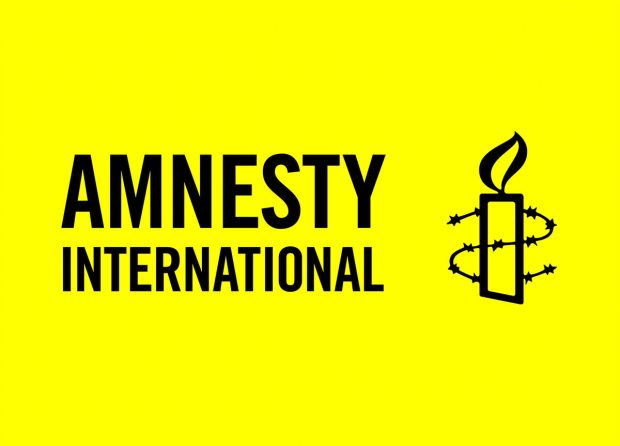Amnesty International: European migration policies resulted in 721 deaths at sea over June and July 2018

The number of people drowning in the Central Mediterranean or being taken back to squalid detention centres in Libya has surged as a result of European policies aimed at closing the central Mediterranean route, Amnesty International said in a new briefing published Wednesday.
The briefing, ‘Between the devil and the deep blue sea. Europe fails refugees and migrants in the Central Mediterranean’, reveals the devastating impact of policies which have resulted in more than 721 deaths at sea over June and July 2018 alone.
It highlights new Italian policies which have left people stranded at sea for days and analyzes how European Union (EU) countries are conspiring to contain refugees and migrants in Libya, where they are exposed to torture and abuse.
“Despite a drop in the number of people attempting to cross the Mediterranean in recent months, the number of deaths at sea has surged. Responsibility for the mounting death toll falls squarely on European governments who are more concerned with keeping people out than they are with saving lives,” said Matteo de Bellis, Researcher on Asylum and Migration at Amnesty International.
“European policies have empowered the Libyan Coast Guard to intercept people at sea, deprioritized rescues and hindered the vital work of rescue NGOs. The recent increase in deaths at sea is not just a tragedy – it is a disgrace,” said Matteo de Bellis.
The surge in drownings has been accompanied by a dramatic rise in the number of people arbitrarily held in overcrowded detention centres in Libya. The number of detainees has more than doubled in recent months from around 4,400 in March to more than 10,000 – including around 2,000 women and children – at the end of July. Virtually all these were taken to the centres after being intercepted at sea and returned to Libya by the Libyan Coast Guard, which is equipped, trained and supported by European governments.
“European governments are colluding with Libyan authorities to contain refugees and migrants in Libya, despite the horrific abuses they face at the hands of the Libyan Coast Guard and in detention centres in Libya. Plans to expand this externalization policy across the region are deeply concerning,” said Matteo de Bellis.
During the past year, Europe’s governments have failed to strike a deal on crucial reforms to the Dublin system, which could have helped avoid any dispute on the disembarkation in Europe of people rescued at sea.
In response to this, Italy began denying entry in its ports to ships carrying rescued people. This new policy targets NGO boats, commercial vessels, and even foreign navy ships.
Unnecessary delays in disembarkation forced people in need of urgent assistance – including injured people, pregnant women, torture survivors, people traumatized by shipwrecks and unaccompanied minors – to remain at sea for several days.
“In its callous refusal to allow refugees and migrants to disembark in its ports, Italy is using human lives as bargaining chips. Desperate people have been left stranded at sea with insufficient food, water and shelter, while Italy tries to increase political pressure for responsibility sharing on other European states,” said Matteo de Bellis.
“On top of this, Italian and Maltese authorities have smeared, intimidated and criminalized the heroic NGOs that try to save lives at sea, refused their boats permission to disembark and even impounded them.”
“Italy and European states and institutions must urgently act to prioritize rescue at sea, and ensure that those rescued are promptly disembarked in countries where they will not be exposed to serious abuses and where they can seek asylum.”
The briefing also describes recent cases where breaches of international law have been reported. This includes an incident on 16-17 July, when the NGO Proactiva found a woman still alive and two bodies on a sinking vessel after the intervention of the Libyan Coast Guard, and the pushback toward Libya of 101 people by the Italian commercial vessel Asso Ventotto on 30 July.
“These serious incidents must be promptly and adequately investigated – they highlight the deadly consequences of Europe’s policies,” said Matteo de Bellis.
“European governments must step out of the vicious cycle of closure and externalization they have created, and instead invest in policies that bring order into the system by offering safe opportunities to travel to Europe for both refugees and migrants.”
How to submit an Op-Ed: Libyan Express accepts opinion articles on a wide range of topics. Submissions may be sent to oped@libyanexpress.com. Please include ‘Op-Ed’ in the subject line.
- Rep. Sweker survived assassination attempt - March 14, 2025
- Mabruk oilfield flows again - March 14, 2025
- EU ‘ready to negotiate’ following Trump’s latest tariff threat - March 14, 2025


